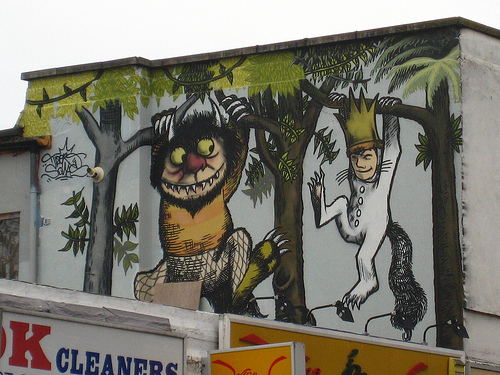I’ve just finished reading Antifragile: Things That Gain From Disorder by Nassim Nicholas Taleb. It’s a sprawling, fascinating, maddening book that is badly in need of a copy-editor. But one of Taleb’s pet hates (he has many) is copy-editors.

There is a simple and profound central idea. Think of anything at all: a person, an idea, a relationship, a business, a country, a piece of technology, an ecosystem.
Some things are fragile. When some kind of crisis occurs, an unexpected event, a systemic shock – then they break. It might mean a small bit of damage or the destruction of the entire unit. Fragile things are harmed by crises.
What is the opposite of fragile? Our instinct is to use words like robust, strong, solid, resilient, perhaps flexible or adaptable. Robust and flexible things do not break when a shock comes; they can withstand crises and shocks. That’s true. They are unharmed. But this isn’t the opposite of fragile. The opposite would involve something that positively benefits from a crisis or a shock, that comes out better rather than just the same. We genuinely don’t have a word for this, which is why Taleb invents one: antifragilility.
He gives a neat illustration. If you put something fragile in the post, like a teapot, you pack it carefully and put a big sticker on the outside saying, ‘Fragile: Handle with Care’. What is the ‘opposite’ kind of package? You are tempted to say this would be a robust or strong parcel. But if you send something in the post that is more-or-less unbreakable, like a block of wood or a stone, you don’t put a sticker on the outside saying ‘Unbreakable: Don’t Be Anxious About This’, you just send it without any warning signs. The opposite kind of package, with something antifragile inside, would have a sticker saying something like this: ‘Antifragile: Handle Carelessly, Drop Me, Be Reckless With Me, Try To Damage Me’.
What would go into such a package?
Taleb shows how many things in life and society are antifragile. They actually benefit from crises and shocks, at least within certain limits. The human body is one example, it doesn’t benefit from being pampered, it grows stronger through certain shocks and stresses – within limits. Some ideas only develop through challenges and awkward confrontations. Some businesses are perfectly poised to benefit from difficult and unexpected situations, because they are able to adapt and seize new opportunities. Some relationships are able to discover new depths and different kinds of intimacy through problems and difficulties.
What is it that makes some things fragile, some robust, and some antifragile? You’ll have to read the book yourself!
The other big theme is the nature of rationality: how we try to predict the unpredictable, and when we fail and are caught off guard we try to pretend we knew what was going to happen. It’s much wiser, argues Taleb, to admit that many things, especially future crises and disasters, are completely beyond our powers of reasoning (even though they may be rational in themselves). The trick is not to be ready for a particular unexpected event, which is by its very nature unpredictable, but to be ready for something unexpected and unpredictable to happen, so that when it does happen we are able to react in a creative and intelligent way, bringing an unexpected good out of these unexpected difficult circumstances (antifragility), and to create systems that are resilient to major shocks or at least not set up so that they will shatter when the first unpredictable jolt takes place (a certain kind of flexibility and robustness).
It was the perfect bedtime book for me. Easy to read, full of stories, provocative. And it genuinely made me rethink a lot of things I had taken for granted without question before.
Read Full Post »







